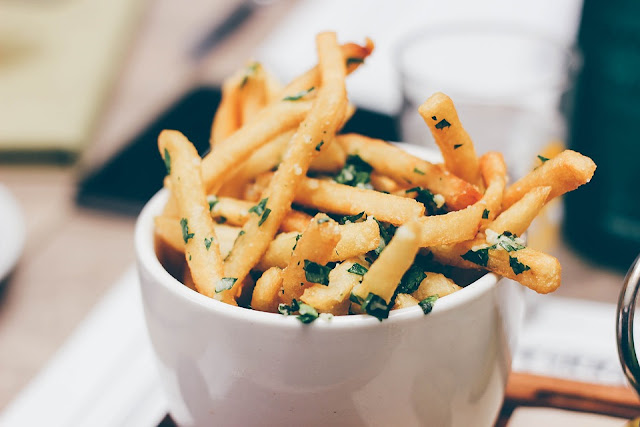A Glimpse Inside the Kitchen of Minneapolis Chef Lianne Wadi
Lianne Wadi moves through the kitchen like someone who’s already lived a lifetime in it. And in a way, she already has. Before arriving at New York’s Culinary Institute of America (CIA), Wadi spent nearly a decade working in the restaurant and catering industry in her hometown of Minneapolis, managing kitchens, overseeing big-ticket events, and pushing business operations to new efficiencies. By adding the title of expert chef to her list of accomplishments, she’s not so much chasing a dream but continuing to fulfill and build on one.
Wadi brings a sharp business mind, honed by a marketing and entrepreneurship degree from the University of Minnesota, to the craft of cooking, pairing classical training with the flavors and memories of her Palestinian roots. It’s a mix of precision and personal history: old-world recipes recast through contemporary techniques, styles, and presentations. She achieved record-setting sales for her former workplace at the Minnesota State Fair, implemented a new online ordering system that boosted efficiency for the same, and earned a spot on CIA’s in-house social media team. Through it all runs the same mission: to tell the story of Middle Eastern cuisine with authenticity, creativity, and an insistence on growth.
We recently caught up with Lianne Wadi for an interview about her culinary journey, blending heritage with technique, and the lessons she’s learned along the way.
Q: How has your experience managing a restaurant prepared you for the challenges of a professional kitchen at CIA?
LIANNE WADI: Gaining real-world experience in a functioning and thriving restaurant gave me so many gifts that have served me well at CIA. For one, I learned how to stay calm under intense pressure. For another, I developed a deep understanding of timing and organization. I also learned how to anticipate problems before they arise, which comes in handy in the kitchen, let me tell you! It taught me how to communicate clearly with my team, even in the middle of a rush, and it reinforced the importance of staying organized and focused, no matter how chaotic things get.
Q: How do you balance creativity with precision when executing a complex dish?
LIANNE WADI: Creativity in the kitchen is a hard thing to explain using words. A lot of it is based on gut feelings and intuition. I've been heavily influenced by my family and the cooking techniques they taught me ever since I was a little girl. Those lessons, principles, and old-world recipes have given me a rock-solid grounding around which I can allow my individual creativity to be expressed without losing the essence of the dish.
There are some rules that must be observed when making complicated dishes. Depending on what I’m making, elements such as timing, order of mixture, and what temperature I use can be non-negotiable, no matter how creative I’m feeling. Cooking isn’t like writing a post-modern free-form novel—it’s more like impressionist painting. The rules set the parameters, and within them, you can explore color, flavor, and technique freely.
Q: What lessons from your marketing and business background have been most useful in shaping your approach to preparing food?
LIANNE WADI: While marketing is a totally different beast from cooking, there is some overlap between them. In both disciplines, presentation is key. I think everyone knows that about marketing, but the visual experience you create with food subtly and discreetly influences how it is experienced by the diner. A nice-looking and well-put-together dish can sometimes make the food taste even better. My business background has been helpful with keeping costs in mind when I prep a complex menu or devise the food options for a large-scale event. When preparing food, as with virtually all other aspects of life, smart budgeting is important.
Q: Here’s a fun question: If you could collaborate with any historical chef, living or dead, who would it be and what would you create together?
LIANNE WADI: There have been so many chefs I’ve taken inspiration from over the years. If I had to pick just one, though, I think it would be Anthony Bourdain. His career had a profound impact on me—not only because of his food, but because of the way he used food as a lens to travel, explore, and learn about cultures with honesty and respect. Growing up, I watched his shows and was struck by the way he sought out authenticity, giving a voice to people and cuisines often overlooked. I read his books in my teens and carried many of his lessons with me. But beyond the knowledge I gained, what I admired most was his attitude: he was endlessly curious, brutally honest, and unafraid to step outside his comfort zone.
As for what meal we might make together, I would love to share Musakhan with him. It’s often called the Palestinian national dish, and it embodies so much history and flavor. I think he would appreciate both its authenticity and the story behind it—and I know we’d have an incredible time cooking and sharing it side by side.





